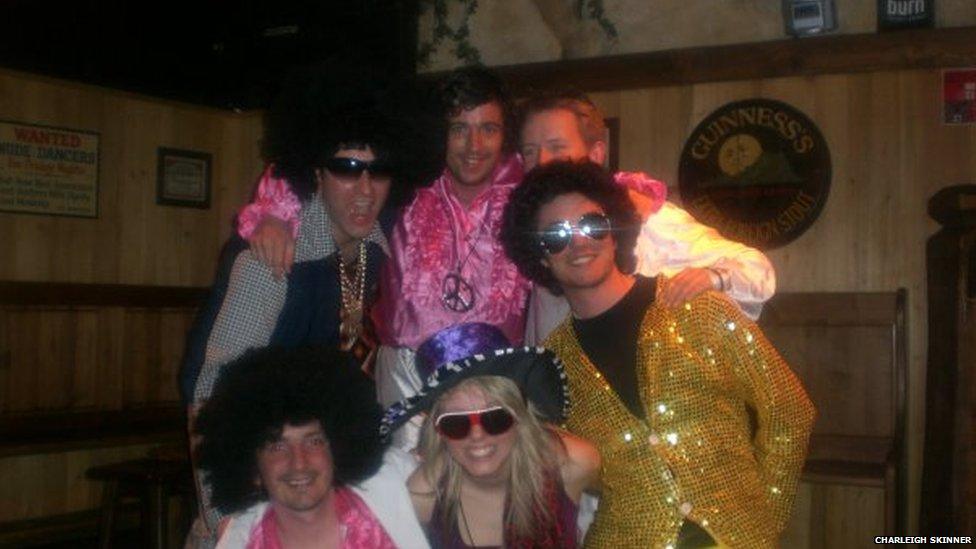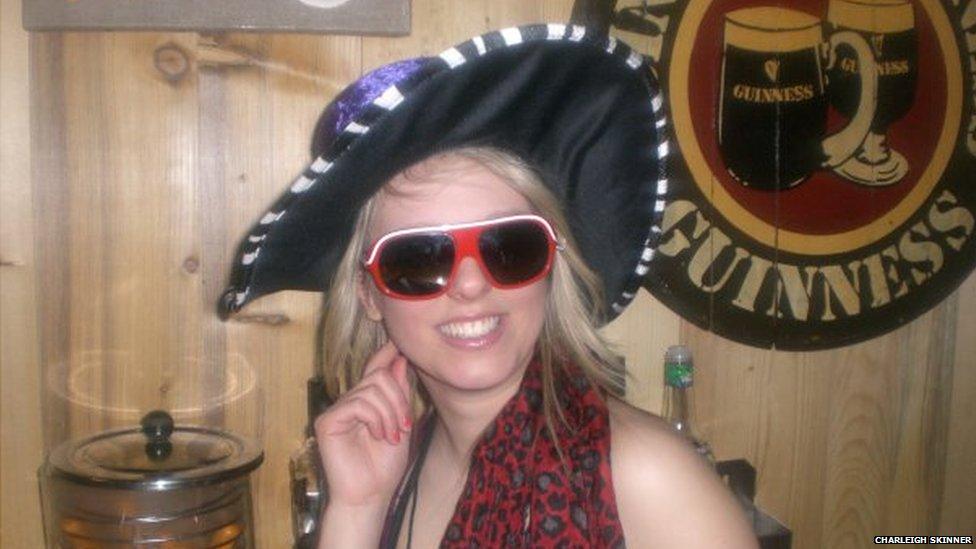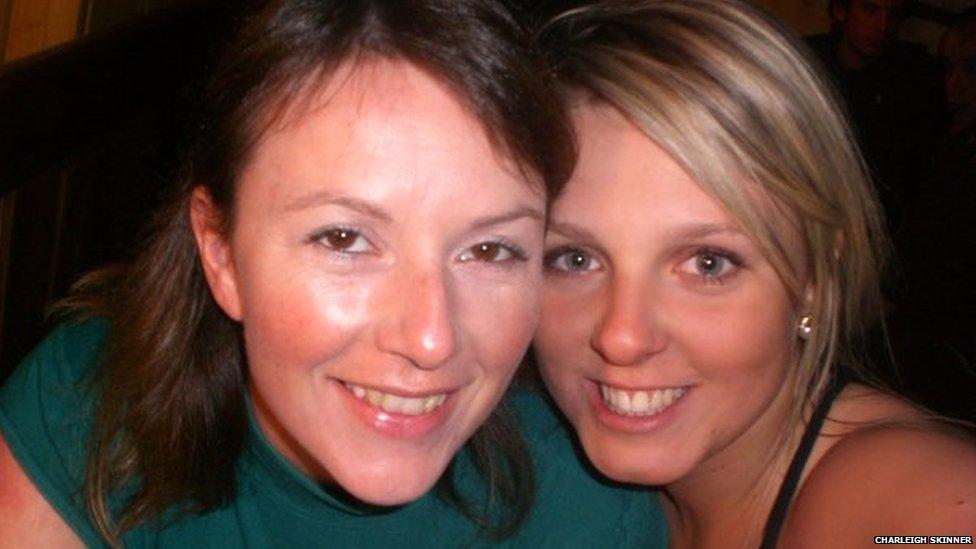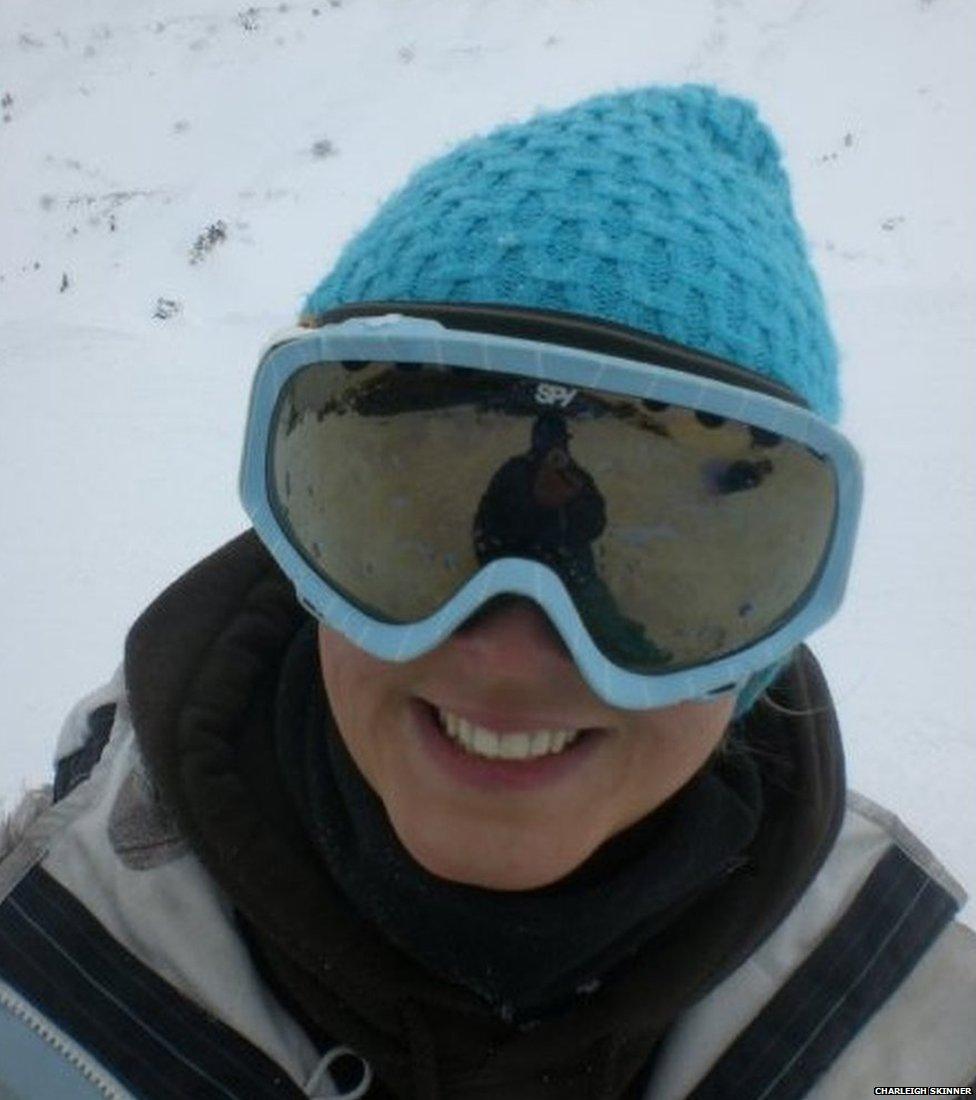'Encephalitis cost me 10 years of memories'
- Published

Charleigh Skinner (r) wants more people to know about the symptoms of encephalitis
Charleigh Skinner loved snowboarding and spent three years working at a winter resort, but can't remember any of it after contracting encephalitis.
Looking at photos of her friends from that time she says: "It's sad because we did all this great stuff together but it's not a part of my life."
She wants more people to know about encephalitis, the illness that caused her severe memory loss.
The condition affects around 6,000 people in the UK every year.

Charleigh uses Facebook pictures, like this one, to try and remember her time working and partying at a ski resort
It can be deadly if not treated quickly, but Charleigh says getting diagnosed is difficult because of the symptoms.
"The initial symptoms can be memory loss and confusion, which are similar to drug abuse or psychosis," she explains.
"In my case they just jumped to that conclusion, they presumed as a young girl I must be on drugs."
It started as a chest infection for Charleigh when she was 20. The virus got worse, spread and developed into encephalitis.
"I had spiking temperatures," she says.
"I looked green. Every two minutes I was asking where I was and why I was in hospital."
The condition causes a swelling of the brain but if diagnosed and treated quickly people can make a full recovery.
That didn't happen in Charleigh's case and she's lucky to be alive.

Charleigh says she forgot how to snowboard
"I'm every doctor's medical marvel really," she says. "You've got an illness sitting there attacking your brain basically.
"The longer it goes undiagnosed, the lasting effects and damage to the brain get worse.
"I have epilepsy now because of the scar it left on my brain."
She suffered for six days but managed to fight the virus off without proper medication.

Charleigh is working with the Encephalitis Society to try to raise awareness of the illness
She still lives with the side-effects years later, memory loss being one of the most prominent.
Her short-term memory is better now but Charleigh says she has a 10-year blank from the age of 20 backwards.
"I forgot all of my school years, forgot that I spent nearly three years doing a ski season," she admits.
"I forgot I could speak French and snowboard.
"You could drop me off on the street that I've lived on for all my life and I wouldn't know how to get home."

Charleigh says her friends have to tell her stories from her past, because she can't remember them
Charleigh and the Encephalitis Society, external are trying to raise awareness so people understand the symptoms and can look out for them.
They also want doctors to be more prepared to consider the condition when they're trying to diagnose patients.
She says she doesn't want anyone to go through what she has been through.
Charleigh says she cherishes her Facebook photo albums because it's a way she can look back and have some idea of the life she led before.

"At the beginning I looked at them a lot, to try and jog the memories to come back," she tells us.
"I think I've come to terms with the fact that they won't but it's nice to have things like Facebook.
"I do have those photos to look back on, rather than have the memories completely erased, never to be seen again."
Find us on Instagram at BBCNewsbeat, external and follow us on Snapchat, search for bbc_newsbeat, external